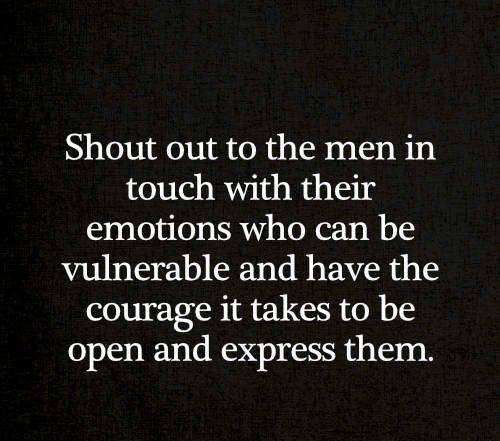Ever wondered why some men rarely say what they feel out loud? It’s not that they don’t feel or care, they just communicate it in quieter ways. Men express their feelings through actions, presence, and the small details you might overlook.
Society often teaches them to be strong, composed, and less expressive, but that doesn’t mean they’re disconnected from emotion. If you pay attention, you’ll see that his emotions are written between the lines.
Here are 8 emotional languages and ways men express their feelings quietly.

Read more here: 7 Signs You’re Spiritually Married To Someone Without Realizing It
How Men Express Their Feelings In Their Own Emotional Languages
1. When he says sorry even when he’s not wrong,
He values peace over pride.
How do men express their feelings? Sometimes, his apology isn’t about surrender, it’s about protecting the connection. A man who apologizes first, even when he feels right, isn’t weak; he’s emotionally mature enough to choose harmony over ego.
2. When he gets angry,
He’s overwhelmed, not heartless. Hug him tighter.
Anger is often a mask for frustration, exhaustion, or fear. When he lashes out, it’s rarely about you, it’s his emotions spilling out in the only way he knows. Instead of retreating, reassurance can help him feel safe again.
3. When he gets overprotective,
It’s his fear of losing you, not control.
What looks like possessiveness often stems from deep care. For many men, protecting the person they love is how they show devotion, a way of saying, “You mean too much to me to risk losing.”
4. When he stares at you silently,
He’s soaking you in, not zoning out.
Men may not always put their feelings into words, but according to the language of emotions, their eyes often say it all. When he looks at you quietly, he’s memorizing the moment, your smile, your presence, your calm. It’s affection in its purest, wordless form.
5. When he remembers the small things,
He’s listening, even when you think he’s not.
He might forget birthdays or big gestures sometimes, but he’ll recall that song you mentioned or your coffee order. That’s how he says, “I see you, I notice you, I care.”
Read more here: Banksying Dating: The Toxic Trend Of Silent Drifting
6. When he stays calm during fights,
He’s trying to protect the relationship, not avoid it.
Many men process conflict internally. Silence, in this case, isn’t withdrawal, it’s restraint. He’s choosing not to say something hurtful, waiting for clarity before responding.
7. When he helps you without being asked,
That’s his way of saying “I love you.”
Acts of service are one of men’s strongest emotional languages. Fixing something, running an errand, or solving a problem, it’s not about the task, it’s about care translated into action.
8. When he opens up about something personal,
He’s trusting you with a piece of his armor.
Men aren’t taught to be vulnerable easily. When he shares his fears, past, or pain, it’s not casual, it’s a quiet confession that you matter enough for him to be real.
Read more here: Shrekking: The Toxic Dating Trend You Didn’t Know Existed!
The Language of Emotions
Figuring out how men express their feelings takes patience, empathy, and seeing things from a new angle. Not everything is about words; look for his actions, quiet times, and small things he does. Once you catch onto these subtle clues, you’ll realize he’s been communicating all along, just in his own way.
How do men express their feelings according to you? If you’ve mastered their language of emotions then share with us in the comments below!








